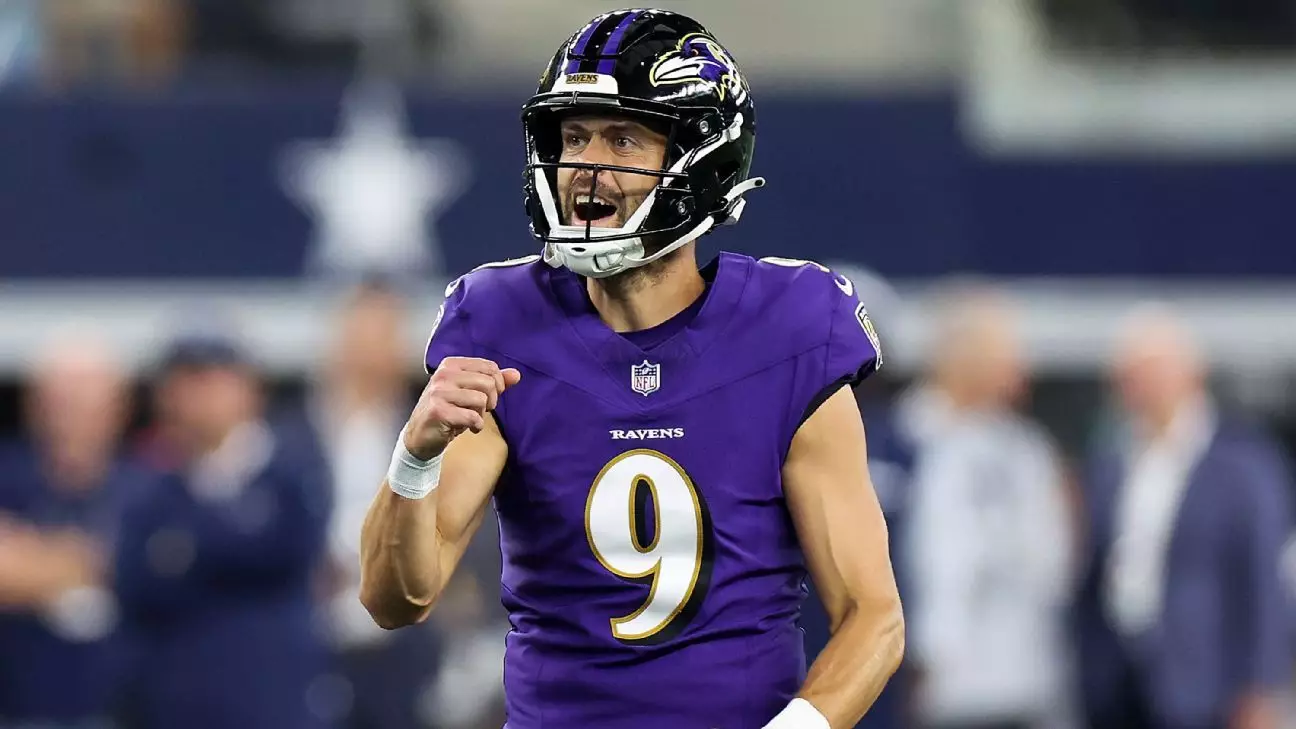The landscape of professional sports is often riddled with complexities, particularly when allegations of misconduct surface. The current situation involving Baltimore Ravens kicker Justin Tucker epitomizes this turmoil, as the franchise grapples with the dual challenges of a talented player’s potential misconduct and the broader implications of accountability in the National Football League. The Ravens, led by president Sashi Brown, have taken a cautious approach, signaling a desire for a thorough understanding of the facts before making definitive decisions. This situation is not merely about Tucker; it reflects the greater challenges organizations face in maintaining integrity and public trust.
Understanding the Allegations
Tucker stands accused by 16 different massage therapists from various spas across Baltimore, facing claims of inappropriate behavior that range from sexual advances to explicit actions during sessions over a span of five years. This alarming number of allegations is not just a matter of personal shame but speaks to the broader issues of power dynamics and vulnerability within professional sports. While Tucker has publicly denied these allegations, labeling them as “unequivocally false,” the sheer volume of claims presents a daunting challenge for both him and the Ravens as they navigate this turbulent controversy.
The Investigative Process: Challenges and Implications
Brown emphasized the importance of an unbiased investigation, urging patience as the NFL’s inquiry unfolds. History suggests that thorough investigations take time, as seen in the prolonged resolution of Deshaun Watson’s case. Players’ unions and organizations must tread carefully, prioritizing the rights and voices of all involved. The Ravens are not in a unique position; they find themselves at a crossroads—wrestling with the need to protect their franchise and address the gravity of the accusations. This raises critical questions: How do organizations balance the integrity of their players with the imperative of accountability? How does one measure the reputational risk versus the human element in such harrowing situations?
The Fine Line Between Talent and Morality
Justin Tucker is not just an ordinary kicker; he is a historical asset to the Ravens and the NFL, setting records for accuracy that are unlikely to be surpassed soon. Yet, the Ravens now face an existential dilemma: does his undeniable talent outweigh the troubling revelations and potential harm to the team’s reputation? If the franchise chooses to dismiss him, it comes with financial implications. The complexities of the salary cap, intertwined with moral considerations, illustrate the tangle of financial and ethical responsibilities faced by today’s teams.
This situation is compounded by marketplace pressures; general manager Eric DeCosta has already hinted at considering alternative kickers as the NFL draft approaches. The Ravens’ future decisions may hinge not only on Tucker’s performance or misconduct but also on the need to project a vision of ethical compliance as a top priority for player conduct. Can a franchise with such a tumultuous cloud over its star performer still operate efficiently and maintain a winning ethos?
A Cautious Path Forward
As the Ravens brace for the impending offseason, Brown’s comments reveal a calculated commitment to transparency and due diligence. He acknowledges the urgency of the situation while advocating for a methodical approach, allowing the investigative process to play out. Until a final resolution is found, Tucker will continue to participate in the team’s activities, aligning with collective bargaining agreements and the NFL’s personal conduct policy.
This leniency may raise eyebrows, but it also highlights the complexities involved. Allowing Tucker to remain part of the team during the investigatory phase could be interpreted as a crucial balance between protecting an individual’s rights and addressing serious allegations. It illustrates the struggle between perception and reality—how actions taken today can ripple into countless ramifications for player reputations and franchise legitimacy.
The saga surrounding Justin Tucker’s future represents not only a pivotal moment in his career but also serves as a reflection of broader societal issues confronting professional sports today. How the Ravens proceed will shape not only their roster but the way they, and the NFL, engage with the multifaceted challenges of player conduct and accountability moving forward.

